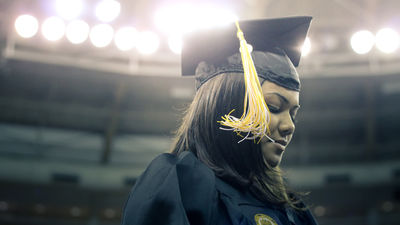Does providing special education to gifted children lead to discrimination against people of color?

'
Stop Eliminating Gifted Programs and Calling It 'Equity' | Teach For America
https://www.teachforamerica.org/one-day/opinion/stop-eliminating-gifted-programs-and-calling-it-equity
One criticism of gifted programs in public education is that they focus resources on already privileged students, creating an unfair situation for students of color who are often underrepresented.
While it's clear that some children are academically gifted in a public education system that labels students based on various indicators, research has shown that Black elementary school students are 66% less likely to be identified as 'gifted' than their White counterparts who achieve the same test scores, and that Black, Latino, and Native American children are far less likely to attend schools that offer gifted programs. These disparities are problematic.
Some people involved in building school systems are beginning to consider 'uniformly abolishing gifted programs in public education' to eliminate this inequality. While Seale, who is also a person of color, acknowledges that on the surface this seems like a logical conclusion, he argues that 'closing gifted programs will only deepen inequity for talented and underrepresented students of color and create new barriers to unlocking their talents,' and argues that gifted programs should not be abolished.
Citing the example of a case in which eighth graders of color (second-year junior high school students in Japan) have a significantly lower rate of taking Algebra I, Seale argued that rather than eliminating Algebra I from the eighth-grade curriculum to address discrimination, the curriculum for seventh grade and below should be revised to give everyone the opportunity to take Algebra I. 'Since when has equity come to mean 'everyone gets nothing?'' he said.

'Children who are academically gifted tend to be more academically gifted than their peers, and because age-appropriate classes are too boring, they tend to develop behavioral problems,' said Seale, who attended a gifted program himself. 'If access to gifted programs were cut off, many bright children would lose their academic enthusiasm, which could be destructive.'
We also need to acknowledge the reality that even if gifted programs were eliminated from public education, wealthy parents have access to programs that help develop their children's talents outside of school. This means that eliminating gifted programs from public education would only hurt less privileged children and not have much of an impact on more privileged ones.
Mr. Seale pointed out that 'all children are talented' and providing the same education to everyone is completely different from allowing all children to access special programs to develop their talents. Since the abolition of gifted programs further strengthens the inequality between the wealthy and the disadvantaged, he argued that gifted programs in public education should not be abolished but expanded so that all children who need special education can take them.

Related Posts:







